Without a doubt, biohacking your sleep is among the most important things you can do for yourself.
Many of the world’s highest performers share a secret…
Your perfect day starts the night before, with the quality and quantity of your sleep. Click To TweetThat’s why some of the top athletes—like Lebron James—sleep up to twelve hours per day [R].
The web has all kinds of tips and tricks on how to fall asleep. Most of them fail to address the root causes.
For most of my life, sleep was also my Achilles heel.
I sleep lightly. The faintest whisper, blinking LED, or scent rouses me from my deepest slumber.
Wearables like my Oura Ring recorded half a dozen such instances every night. My thoughts raced when I hit the pillow. I’d toss and turn.
And my well-trained circadian rhythm wakes me at the same time, no matter what time I go to sleep. Even when I get the quantity right, I wake through the night.
I turned to a sleep study for answers. I wore a clunky wearable around my wrist, a pulse oximeter caged around my finger, and 12-point leads strapped to my chest. Feeling equipped like a Marvel character didn’t produce a great night of sleep.
The result of my study?
Acute sleep apnea.
That began my journey into optimizing my sleep. I meticulously researched and spent thousands on testing the best sleep tips, tricks, and biohacks.
I now sleep decently, sometimes hitting the elusive 95+ sleep score on my Oura Ring (and 100/100 on Eight Sleep).
In this post, I’ll share all the popular sleep wisdom that has and has not worked for me. So that you can shortcut the costly trial and error and quickly find what works best for you and your lifestyle.
Quick & Dirty on Why You Must Optimize Your Sleep
Sleep is quite possibly the most important part of your health to get right.
It’s the time when the body repairs, regenerates, and grows.
Once you establish an ideal routine, it’s also quite easy to maintain. Unlike eating clean or intense exercise, sleep is quite enjoyable and something we all must do—or perish.
Most people think they sleep fine.
But they don’t.
In fact, 20% of all Americans have Obstructive sleep apnea, and 90% of them are undiagnosed [R]!
Even if you do everything else right, if you haven’t optimized your sleep, you won’t get all the benefits of healthy living.
Here’s the cool part. Two facets determine the effectiveness of your sleep:
- Sleep quality
- Sleep quantity
Sleeping 60-90 minutes more per night can make you happier & healthier [R].
But we can also focus on sleep quality. Helping your body restore more for each minute you’re asleep. Helping you either get the same benefits from sleeping less, or a greater return on your current time spent sleeping.
Health Benefits of Sleep (How ‘I’ll Sleep When I’m Dead’ Kills You)
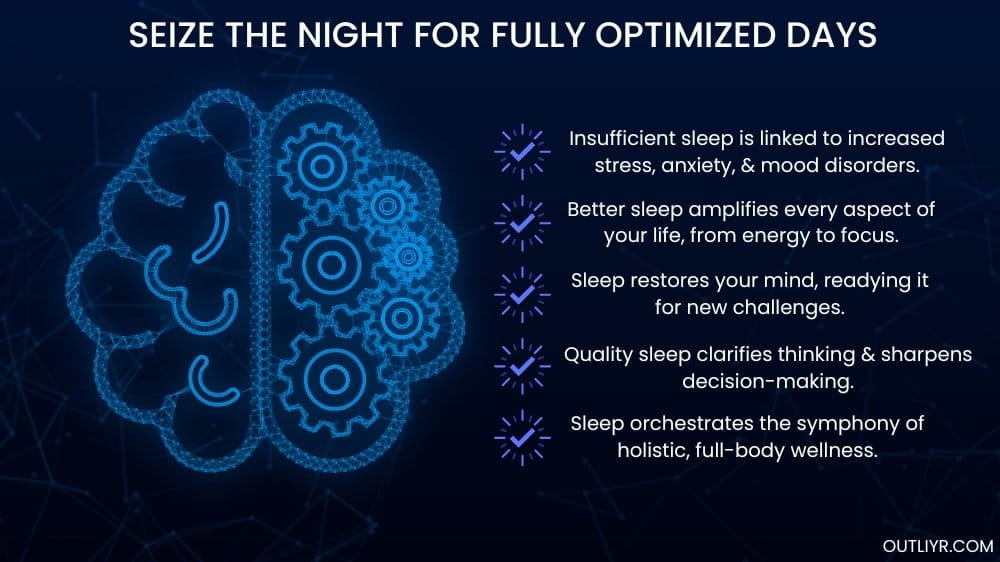
I grew up with the notion that sleep would consume eight hours—1/3 of life. My teenage years introduced me to the other camp. The ones espousing “sleep is for the weak”.
Motivational memes and sensationalist tabloids praise the so-called “sleepless elite”. To compound the matter, society rewards sleep deprivation. A seductive idea to a teenage night owl.
Years later, Dr. Matthew Walker’s book, Why We Sleep [Amazon] shattered my conditioning on sleep.
I could hardly believe my eyes. This researcher audaciously argued that sleep is the most important thing you do every day for:
- Repairing damaged tissues
- Cleaning the brain
- Detoxifying
- Processing emotions
- Balancing hormones
- Relaxing the mind
- Preparing for the following day
- Making sense of events
- Protecting against disease
- Sculpting your ideal body
- Generating energy that naturally lasts all-day
And myriad functions science is still uncovering.
That’s not all.
We know a few things about the consequences of sleep deprivation:
- People look physically less attractive
- Increases risk of physical and mental illness
- Disrupts the activity of 711+ genes
- Weight gain through disruption of hunger hormones leptin and ghrelin, and stimulation of the endocannabinoid system
- Reduces microbiome diversity
- Hyper-activates fear response to life events
- 200-300% increased risk of calcification of arteries, heart attack, or stroke
- The body produces fewer antibodies in response to vaccines, making them less effective
- Disrupts blood sugar levels to the equivalent functionality of a pre-diabetic
- Reduces HDL, considered the “good cholesterol” (but I’m not convinced LDL is all “bad”)
- Plummets testosterone levels in just one night
- Reduces motor coordination and cognition equivalent to heavy drinking [R]
- ~20% of all car crash accidents and injuries are associated with sleepiness.” [R]
- Medical errors by physicians increase [R]
- Learning, reacting, focusing, decision-making, emotional regulation, problem-solving, and adaption problems [R]
- Heightens emotional sensitivity and social reactivity [R]
- Small stressors cause greater emotional distress [R]
- Impairs cognitive functions like working memory, cognitive speed, and accuracy [R]
- Exacerbates stress by interfering with emotional and psychosocial interpretation of events [R]
- Increased anxiety and emotion dysregulation [R]
- Biases memories towards negative interpretation [R]
- Impairs integrating and consolidating memories into long-term storage [R]
- Worsens cognitive speed, accuracy, performance, attention, and working memory [R]
My “I’ll sleep when I’m dead” mindset was ruining my current quality of life and capping my potential healthspan. Indeed, research suggests a strong link between sleep and lifespan [R].
The nail in the coffin, however, is the detrimental effect on physical fitness. Sleep-deprived weight loss comes primarily from lean body mass [R].
I unknowingly thwarted my hard work in the gym by burning more muscle for fuel instead of body fat.
Dr. Walker presents thousands of facts in his landmark book Why We Sleep. Despite internet critics griping over a few of his assertions, it’s a must-read for anyone doubting sleep’s necessity.
But I began wondering a common question.
Simple Science of How Sleep Works
We still don’t fully understand the details, functions, and full extent behind sleep.
So far, however, we’ve established the following rudimentary knowledge.
But what is it, and how does sleep work at a high level?
Every night, your brain embarks on an odyssey through distinct sleep stages.
Contrary to the belief of most sleep biohackers, every stage of sleep has a vital role. We cannot eliminate the Light Sleep stage to maximize Deep & REM and still be healthy.
The journey begins with the lightest phase where the world drifts away, progresses into a mysterious realm rich in dreams, and plummets into the abyss of deep sleep.
Understanding some of the main sleep stages opens avenues for optimizing rest and maximizing your vitality.
Light sleep
Light sleep acts as the gatekeeper to a restorative night’s journey.
During these fleeting moments – typically lasting from one to five minutes – your brain produces theta waves, slowing down your brain’s activity.
Your body begins to relax, muscles unwind, and eye movements slow down. The roles and benefits of light sleep include:
- Memory: Sleep spindles occur, which are bursts of high-frequency brain waves associated with the processing and consolidation of memories [R]
- Creativity: Aids problem-solving and creativity. Awakening during stage light sleep yields more “eureka” moments and uncovering hidden patterns behind complex problems [R]
- Physical regeneration: Deep sleep is best associated with physical restoration and growth, but light sleep also enhances bodily systems (brain, muscles, and organs). Tissue repair, cell growth, and immune support also occur during light sleep [R]
- Skills: Light sleep after learning a new motor skill helps the acquisition and improvement of motor skills (muscle movement and coordination) [R]
Of course, this period also serves as a key transition between wakefulness and deeper stages of sleep.
This is prime territory for biohacking – subtle interventions can ease the transition, enhancing the quality and efficiency of subsequent stages.
Rapid Eye Movement (REM) Sleep
Up next is the realm of REM sleep.
This sleep stage is characterized by increased brain activity, vivid dreams, and rapid eye movements (hence the name). It typically occurs about 90 minutes after falling asleep and repeats throughout the night in progressively longer cycles.
Your longest REM cycles generally take place in the second half of the night. Wake up earlier than normal, and your REM suffers the most.
During REM sleep, your body becomes temporarily paralyzed to prevent acting out your dreams.
Meanwhile, your brain is highly active. During REM, crucial cognitive processes occur, such as memory consolidation, learning, and emotional regulation. This stage is best known and essential for:
- Creativity
- Problem-solving
- Mental wellbeing (overall)
Interestingly, alcohol has a profound impact on REM sleep.
As tempting as that nightcap may be, consuming even low amounts of alcohol can impair sleep quality by up to 9.3%. Larger quantities can have an even more detrimental effect, reducing sleep quality by as much as 39.2% [R].
Alcohol disrupts the delicate balance between deep sleep and REM sleep, leaving you feeling groggy and unfocused upon waking.
Sleep Stage 3: Deep/Non-REM
Now we descend further into the depths of deep sleep (also called Non-REM sleep).
Scientists divide this stage into two parts: N3 and N4. We start in N3 deep sleep and later progress to N4.
During deep sleep, your body undergoes extensive physical restoration and repair. It’s a time when energy is conserved, and tissues get replenished.
Brain waves, during a shift to slow delta waves, contribute to the profound tranquility experienced during this stage.
Blood pressure drops, breathing slows down, and muscles relax.
Deep sleep is vital for numerous physiological functions:
- Immune functioning
- Hormone regulation (growth hormone surges)
- Growth and repair of tissues
- Memory consolidation (solidifying new information & enhancing learning)
Understandably, most sleep hackers focus on maximizing deep sleep.
Factors like stress, lifestyle habits, inadequate movement, and certain medical conditions can disrupt this key sleep stage.
How Long Should I Sleep?
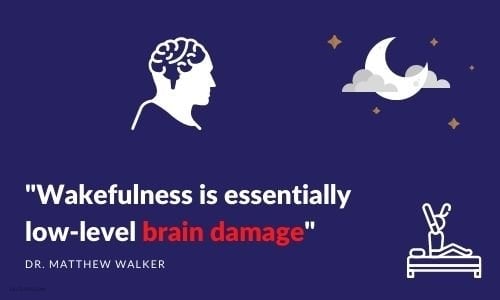
You should probably spend about 8-9 hours in bed, to get 7-8 hours of sleep. Here’s why.
Until I began using the Oura Ring I conflated time in bed with time asleep.
Laying in bed for eight hours can really be 7-7.25 hours of sleeping time. Significantly less for some people.
This is due to the time it takes to fall asleep (sleep latency) and “micro-wakeups” throughout the night.
“Only that which is tracked can be improved.” — Peter Drucker
Getting a quality self-quantification wearable like the Oura (read my new Oura Ring V3 review) is the first step to improving sleep. It provides a window into your current baseline.
So how much should you actually sleep?
There’s an easy way to gauge…
How do you perform in the morning? Ask yourself questions like:
- Can you wake up without an alarm clock? —> if so, you’re likely getting enough sleep
- Can you function without caffeine before noon? —> if so, you’re likely getting enough sleep
- Can you go back to sleep after getting up? —> if so, you’re likely NOT getting enough sleep.
Another simple test is to venture off the grid.
Go camping (without electronics or technology) and note your natural sleep and wake timings. That’s what you need, despite the distractions of modern life.
Through trial and error, I settled on my sweet spot of 8.5 hours “in bed” time for 7.5 to 8 hours of sleep time.
To get more out of this time asleep, over the years I’ve experimented heavily with different sleep biohacks.
Track & Measure
The first step to biohack your way to perfect sleep is to establish your baselines.
Understanding your current physiological state helps us ensure there are no glaring red flags. After all, certain imbalances, deficiencies, and tendencies will derail even the most valiant of protocols.
The three main tools I like to get a snapshot into your current biological state include:
- Blood testing for vitamins, minerals, hormones, and food intolerances
- Genetic analytics to understand life-long predispositions and focus areas
- Daily wearable to understand quantitative biometrics
Blood testing is essential to get a window into your overall health. Your annual physical may reveal some important details. Better yet, consider one of these top at-home lab testing services to get a much greater picture (without impacting your health insurance rates).
Then, a quality breakdown of your unique genetic makeup using a service like this can help you decode hindrances and unique things that you should focus on. Sometimes, these actionable reports will uncover things that work great specifically for you but may contradict popular sleep wisdom.
Finally, wearables are perfectly suited to help us discover patterns between our lifestyle habits (say, drinking alcohol) and the impact on our sleep. Not just our sleep, but our recovery and rejuvenation from the night.
In my opinion, the recovery data matters more than the sleep metrics. Plus, it’s considerably more accurate. I personally use the Oura ring for both, and this review explains why.
Even better, the latest version of the Oura has a pulse oximeter. Since about 70M Americans have sleep apnea, this can be a crucial tool to help understand your patterns—without the hassle, discomfort, or expense of a clinical sleep study.
Once you know your baseline, you’ll want to work on bioharmonizing your home for optimal sleep.
Bioharmonizing Your Sleep Environment

Your biology constantly processes signals coming from your environment. These signals influence biochemical activities and the entire functionality of the body.
Your environment constantly molds your biological state. It occurs passively, on autopilot. 24/7.
If you do nothing but optimize your environment, you’ll still sleep and recover great.
Light
Time is one of the core signals. Different processes occur at different times. The body keeps track of everything and adapts based on what’s called the circadian rhythm.
A structure in the brain called The Suprachiasmatic Nucleus (SCN) regulates circadian rhythm. It’s composed of ~10,000 neurons and light exposure affects it more than any other signal.
For ideal SCN health, we want heavy light exposure in the morning (promotes wakefulness), and little to none in the evening (promotes sleep).
Even the brightest indoor lights don’t do enough. We need at least 1,000 lux to shut down melatonin production in the morning. Indoor lights are usually between 40-120 lux. Sunlight, even on an overcast day, is between 2,500 and up to 100,000 lux.
Getting outside for early morning light is among the most important things you can do to sleep better. It also inoculates you against light exposure later at night.
We also want to keep the bedroom as dark as possible.
Other key ways to minimize your light exposure at night include:
- Blackout curtains or dark shades
- Eye mask
- Cover bright LEDs on gadgets with black electrical tape
- Use a dim, red light, ideally in a desk-height lamp
Each of these sends cues that it’s not solar noon, and the body should wind down.
Temperature
Temperature constitutes another key component of optimal sleep.
In preparation for sleep, the body must cool down to allow the restorative processes to work best.
We can aid this process by bringing our body temperature down via nutrition or lifestyle.
Some of my favorite ways to lower body temperature for optimal sleep include:
- Temperature-regulated mattress cover (read my Eight Sleep review to learn why it’s been a game-changer)
- An air-conditioned room between the ideal temps of 62-70 degrees Fahrenheit
- Wearing socks to bed
- Quick cold shower immediately before bed
- Hot shower or bath about 1.5 hours before bed
- Supplements like glycine
Paradoxically, wearing socks actually helps cool down core body temperature. Same with immersion in warm water. Although that takes some trial and error. Some people (me) do better with cold than hot.
Ether
The quality of the air you breathe directly impacts your health and ability to regenerate.
Optimizing your air has two facets:
- Internal
- Room
First, you’ll want to make sure that you’re able to utilize the air and oxygen entering your lungs. A wearable like the Oura or a clinical sleep study will help rule out major disorders like sleep apnea.
Then, you can use something like nasal strips and mouth tape to improve flow through your airways.
Finally, you’ll want to make sure to clean the air that you breathe. The more contaminants and toxicants in each breath, the more strain on your cellular detox systems and organs.
Use a quality air filter like this one and you’ll be all set.
I titled this section “ether” because air is but one component of it. You’ll also want to measure and deal with noise and “electrosmog” in your bedroom.
A thorough list of the best air and ether upgrades for your sleep include:
- Air filter to allow for easy nose breathing
- Earplugs or using a white-noise generator
- Installing an EMF kill switch
- Mouth tape
- Nasal strips
The quieter a room, the better it is for sleep. We’ve all heard a loud noise that woke us from the deepest of sleep. That’s an evolutionarily conserved safety mechanism. Your brain and nervous system register sounds as potential threats to your life. So keeping the environment quiet signals safety.
Now, let’s look into the final category.
Earth
Earth is the catch-all I’ve designated to encompass other components of a soothing and restorative sleeping environment.
This section is more speculative but it can still make a difference.
The first things I’d consider here include mimicking the natural sleeping environment. Body position, bed position, aromas, and even “earthing”.
Perhaps most importantly, fix your sleep position. From an anatomical perspective, you should sleep on your back. Ideally, with a pillow under your neck (and not under your head). This helps restore the proper curvature of the neck and offsets the forward head posture caused by constantly using computers/phones.
Alternatively, you could try slightly elevating the head of your bed 1-3 inches. This may improve the body’s cleanup process of glymphatic drainage.
Throughout history, humans slept on the bare ground. Absorbing free electrons through the skin, quelling oxidative damage, and aiding repair. You can learn more about the concept of Earthing/Grounding in this post.
You’ll also want to consider placing soothing scents into your bedroom. Chamomile, bergamot, frankincense, lavender, etc. The olfactory nerve can rapidly soothe or stimulate, so this can help support ideal sleep.
Next, we’ll explore how to biohack your diet and supplements for fully optimized sleep.
Sleep Enhancing Substances
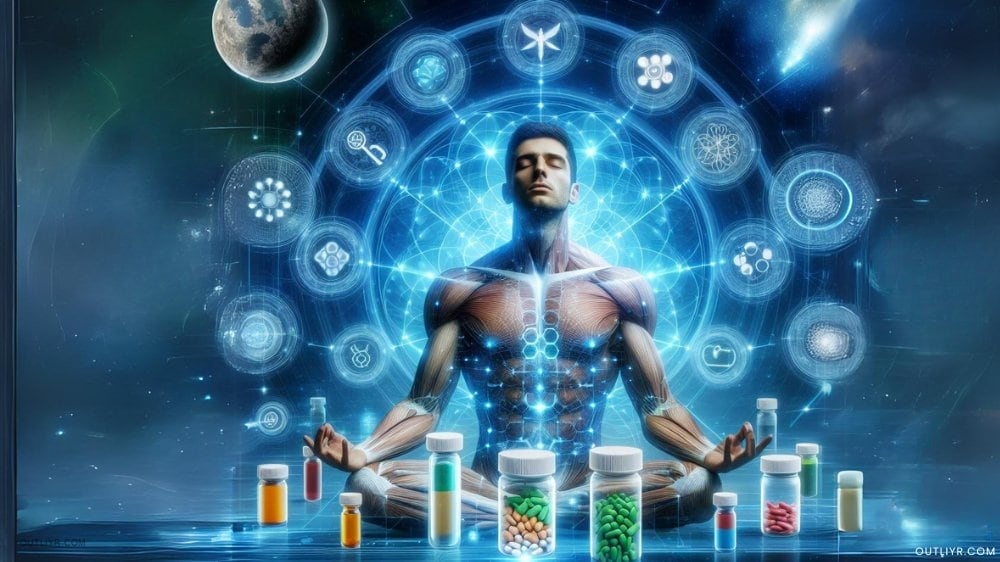
What you put into your body in the hours leading up to sleep can make the difference between tossing and turning through the wee hours, or waking up feeling your best.
While popping a sleeping pill may seem tempting, it actually impedes your sleep. They knock you out, and brain wave readings show that they induce what closely resembles an anesthetized state rather than sleep.
Plus, 80% of those using sleeping medications experience lingering side effects [R].
Instead, we’ll want to improve two facets of nutritional sleep support:
- Food and drink intake
- Supplementation
First, people generally do best when they have their last meal about three to four hours before bed.
A recent study showed that eating within three hours of sleep significantly impairs sleep quality [R].
Dietary tweaks to sleep better
If you tend to wake up throughout the night (especially between 2 to 4 AM), you’ll want to make sure that your final meal doesn’t disrupt blood sugar too much. Large spikes and dips cause the body to release cortisol which promotes alertness (and wrecks sleep).
Instead, you can encourage the body to keep blood sugar steady by burning fatty acids. Supplements like myoinositol and/or carnitine work great for this.
Before bed you may also want to try having a small snack that includes a handful of berries; a tablespoon of raw, local honey; or a teaspoon of MCT oil. All of these keep me asleep longer by providing the body and mind with the fuel it needs. This is especially helpful to those following a low-carb diet (keto or carnivore).
Finally, frequently waking up throughout the night can be caused by ammonia toxicity. In that case, replacing some protein at dinner with small dose of quality essential amino acids. Other supplements like ornithine, magnesium, and again, carnitine can help.
After dialing in your basic nutrition, you can consider more advanced supplementation.
Ideal sleep nootropics stack
Nootropics are substances generally regarded as impacting brain health and performance.
Scientists almost universally agree, however, that sleep is the best nootropic.
Sleep nootropics support the body through it’s nightly regenerative rhythm.
These are what really made the difference for me. So much so that I wrote an entire post dedicated to the best sleep nootropics & ingredients for every goal.
You can learn a ton more over in that article.
I lump sleep supplements into two groups:
- Nightly: effective and safe for long-term use ( Glycine, taurine, potassium, full-spectrum hemp
- Boosters: more powerful but ideally used sparingly (Lipo GABA, lipo melatonin, phenibut, kava
Now, let’s dig into the actual ingredients.
You’ll find that many sleep products combine one or more of the following.
Here are some of my favorite sleep-enhancing supplements, ingredients, and their uses. I’ve ranked them by their impact on my sleep:
- Full-spectrum hemp (nightly): Full-spectrum and non-psychoactive products work far better than CBD isolate due to the synergy effect. This lets me tack on a full extra hour to my sleep.
- Glycine & chamomile (nightly): Most nights I drink Dr. Mercola’s tea before bed (get my favorite Autophagy Tea recipes here). While these are only two of the four ingredients, both promote sleep.
- Ketone esters (booster): Exogeneous ketone supplements are a favorite performance-enhancing molecule of Olympians, pro athletes, business people, and more. They can also dramatically boost deep sleep and overall recovery biomarkers.
- Taurine (nightly): The same ingredient used to take the edge off energy drinks has great sleep-enhancing properties. A little-known but potent way to increase the brain’s winding-down neurotransmitter called GABA. Taurine is non-habit forming and cheap.
- Potassium (nightly): Potassium is an electrolyte mineral that directly opposes the effects of sodium. Sodium has a stimulating effect on the body, and potassium helps quiet neural activity. Since it’s a common nutritional deficiency, cheap, and supports deep rest, it’s a great addition to any stack.
- Magnesium (nightly): Nearly everyone’s deficient in this super mineral. Magnesium is one of my favorite daily supplements. I use a product that contains 5+ different forms of it, each benefitting different organs and tissues. It’s amazing for overall health, although I haven’t noticed much sleep quality improvement though.
- Kava (booster): Kava is one of the best natural relaxation and sleep aids, with over 2,000 years of safe usage. On the islands where it originates, kava bars outnumber alcohol 20:1. Kava works fantastically to unwind and stop stress cold. Although it feels great and is non-addictive, I only use it occasionally due to price. Check out this ultimate guide & review of kava for more info.
- Melatonin (booster): Melatonin is a terribly understood hormone and supplement. Research shows that its not subject to the same regulatory feedback loops as all other hormones. As a supplement, it’s much more than for sleep. Melatonin is one of the most powerful antioxidants. It also is best used to reset circadian rhythm. If I stay up super late, I’ll use melatonin the next night to re-align my body clocks to my normal timings.
- PhGABA (booster): I’m hesitant to list phGABA (phenibut) here. It’s a supplemental form of GABA that enters the brain. This stuff knocks me out. I can sleep 9+ hours with it. If you can hold yourself to a max of once or twice per week, phenibut is a useful tool. Note that withdrawal from abuse is nasty. Most people are better off avoiding it. Nicotinyl GABA (picamilon) is a similar but safer and less sedating alternative that’s becoming popular in sleep supplement formulas.
- Magnolia Bark (booster): A cool supplement has been shown to reduce insomnia, reduce wake-ups throughout the night, and increase REM [R]. Magnolia bark even speeds up the time transitioning between different phases of sleep [R]. It’s believed to work by increasing the rest-promoting GABA(A) activity [R]. If you’re stressed, magnolia helps reduce adrenaline levels [R]. Finally, magnolia bark activates the body’s built-in restorative processes called the endocannabinoid system [R]. One of its metabolites, called DHH-B, appears even more potent.
- Ecklonia kava (booster): Seaweed rarely make lists of top sleep supplements. Ecklonia Cava, however, contains a class of compounds called phlorotannins. One study shows that Ecklonia works on the same sedating GABA receptors as prescription benzos [R]. Investigations of supplement extracts find that it significantly decreased sleep latency, increased sleep duration, and faster time to fall asleep [R]. As well as increased REM sleep [R]. Clean and high-quality sources, however, are tricky to find.
- Theanine (booster): This amino acid naturally occurs in top shade-grown tea, and it exerts noticeable relaxing effects without sedating. Theanine also induces alpha brainwaves which aid the transition into sleep. I usually use it in my Outliyr Genius Coffee recipe to take the edge off the caffeine. Theanine can also help undo the effects of using stimulants too close to bedtime. Note that it can seriously intensify dreams when used in higher doses. I’ve listed it as a booster because I already use it in the morning and it’s most useful to me if I have coffee in the afternoon or evening.
If you want to go deeper here, see my thoughts on the best pre-formulated sleep aid nootropic ingredients & stacks.
Biohacking Sleep Technologies
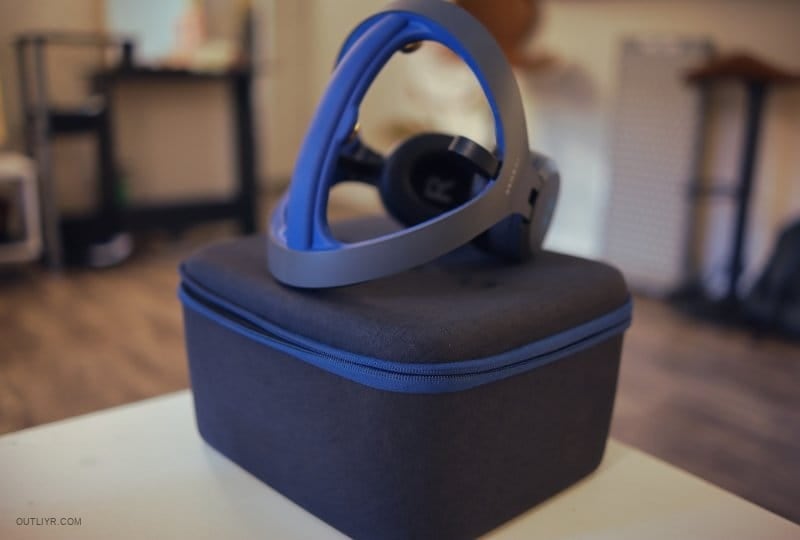
Whether you’re looking for substance-free sleep biohacks, or want to further amplify the benefits, you might want to know about these potent technologies and tools.
The core technologies I use to upgrade my sleep include:
- Oura
- Brain training systems
- Audio entrainment
- Phone apps
- Mattress technologies
Since 2016, the Oura ring has remained the king (or queen) of sleep and recovery quantification. No other devices do it better. I wore mine virtually every night since 2017 and it has only improved over the years.
Brain training systems teach your brain how to enter desired states on command. This can make a massive difference to entrain sleepiness and unwinding, especially for those who have trouble getting (or staying) asleep.
I’ve tested all the best brain training machines over the years. I’ve found one that combines brain training, heart coherence (instant relaxation), and brain photobiomodulation technology. My full Sensai headset review explains why it was my favorite purchase of 2023.
Next, we have two similar technologies that use audio to shift our brain state. You simply put on earphones, hit play, and 10-30 minutes later, you’re struggling to keep your eyes open. I use both of these apps. In my Brain.fm review, I explain how it’s the budget-friendly but less powerful choice. As mentioned in my thorough NuCalm review, this is the premium pick relied on by doctors, business people, military, law enforcement, professional athletes, and those who demand the strongest effects.
Sleep hacking apps like Sleep Cycle can help you wake up during the lightest stage of your sleep. Thus, you awaken and feel fully recharged and ready to go. I used this long before I had an Oura ring and noticed a dramatic improvement after the first night. All you need is your phone.
Last up, are temperature-controlled mattress covers. Back when I first got the OOLER (now SleepMe systems), I logged 10% more REM and Deep sleep per night. I also slept longer. Yet that system has some major flaws. In 2023, I got my hands on the go-to sleep enhancer of Dr. Andrew Huberman, Tim Ferriss, Dr. Peter Attia, Mark Zuckerberg, and countless others. It’s called Eight Sleep, and my Pod Pro 3 review details exactly why it’s a game-changer.
If I could only choose one sleep-enhancing tool, I’d pick the Eight Sleep Pod Pro 3.
Biohacking Sleep Practices & Routines
Here are some more biohacking routines, protocols, habits, and practices to upgrade your sleep.
Posture
As mentioned previously, your posture is one of the chief determinants of your sleep quality. Fix your posture, and you’ll wake up less. You’ll toss and turn less. You’ll wake up feeling more rejuvenated with less stiffness.
The key to fixing your posture is to sleep on your back and move the pillow underneath your neck instead of your head. This helps restore the natural curvature and fixes forward head posture—the most common (and incredibly detrimental) spinal deviation. I had an amazing conversation with Dr. Peter Martone on spine health and achieving the best sleeping position every night. Check out the full episode below!
Caffeine upgrade
There’s an age-old saying among sleep optimizers that goes something like “coffee before noon is medicine, coffee after noon is poison”.
This is because it impedes our ability to fall and stay asleep. Although you may become habituated and tolerant to the effects, it’s a powerful central nervous system stimulant. Due to the pharmacodynamics of metabolism and genetic variations, coffee can last in your system for quite a while.
Let’s consider a large coffee, containing say 150mg, consumed at 3 PM. Some people will have 75mg active in their system by 8 PM. 37.5mg at midnight. That’s just under half a coffee’s worth of caffeine.
Instead, I suggest using caffeine’s superior relative called paraxanthine if you need an afternoon pick-me-up.
Cold showers
15-30 minutes after a cold shower, your core body temperature decreases. This preps the body for sleep.
I was skeptical at first but quickly felt the effects. Some people do better with hot baths 60-90 minutes before bed. You’ll quickly find which works best for you.
Breathwork
Breathing can rapidly and profoundly shift our state.
I’ll sometimes do an intense practice like the Wim Hof Method two hours before bed. Or something relaxing (like 4-7-8 breathing, box breathing, or alternate nostril breathing) once I am laying down in bed.
All help me wind down, calm the mind, and release excess energy.
Quiet time
Slowing down will improve your sleep.
Within at least one hour (ideally two to three) of bed, you should reduce mental and physical stimuli.
For some, myself included, this is a prime time to meditate. At the very least, avoid emotion-provoking materials. That can be the news, social media, or just intense conversation.
Sauna use
Spending 15-30 minutes in an environment of hot air puts me straight to sleep. I’ll usually use my gym’s fancy near-infrared sauna. Other times, I’ll hop in a homemade near-infrared sauna.
What’s especially useful, is that afterward, your body releases more melatonin and human growth hormone. Perfect to prepare for sleep.
When the gyms are open, I’m usually found combining the traditional sauna with a cold shower. This works even better, and I’ve done it consistently for about seven years now.
Hot baths
I’ve only now re-discovered the therapeutic power of baths.
Hot baths earlier in the night absolutely knock me out. An incredible sleep hack.
Ideally, I finish up my bath around two hours before bed. After a long, hot bath I won’t get anything done, so I plan accordingly.
Make sure to use filtered water in your bath.
Red light therapy
Red light naturally occurs during sunset. It primes the body for sleep and recovery. Most of us are severely deficient in red and infrared. Yet overstimulated by blue.
When I’m at home, I’ll sometimes use a special device in conjunction with my sauna (see this post to find your best red light therapy panel).
I don’t notice a massive change, but it’s certainly relaxing and lets my turn off bright overhead lighting.
Mouth taping
Years ago, I wrote about how this strange practice helps me become a nose breather and sleep deeper.
It’s caught on and has become semi-mainstream.
Contrary to popular myth, the primary benefit of mouth taping isn’t sealing your mouth shut. It’s the alignment of your airway.
These days, I rarely mouth tape unless I notice myself reverting to mouth breathing.
Earthing
Earthing is a controversial subject.
Some people call it pure pseudoscience, many skeptics have had their lives changed when Earthing provided them relief (when nothing else would).
I don’t feel sleepy from touching the bare ground. But I do wake up slightly better rested from the same amount of sleep. Earthing may help the body clear inflammation, pain, and common ailments that interfere with recovery.
Weighted blanket
Perceived safety certainly influences our sleep.
Special heavily weighted blankets provide a gentle, consistent pressure on the body, stimulating what’s called “Deep Touch Pressure” (DTP). This pressure soothes and calms the nervous system.
Theoretically, this may increase levels of a neurotransmitter associated with mood (serotonin). Which the body can then convert into the hormone of sleep (melatonin).
And, of course, the weight of the blanket can help reduce restlessness. I notice a big effect from heavy (30-40 lb) weighted blankets.
Nasal strips
Nasal strips are special adhesive strips designed to help improve airflow and alleviate common breathing difficulties.
These strips gently lift and widen the nostrils. They’re particularly helpful for congestion and snoring issues. You simply apply them externally across the nose.
I don’t notice much effect from them, but tons of people swear by nasal strips.
Sleep Enhancing Movements
The way you move throughout the day (and before bed) certainly influences the quality and duration of your sleep.
Any movement is better than none.
Competitive sports
The more draining the movement, the longer, deeper, and better I sleep. With fewer wake-ups too. For me, nothing comes close to the profound drowsiness caused by highly competitive team sports.
Exercise snacks
Exercise snacks are short micro-workouts (ranging from 20 seconds to 5 minutes) performed throughout the day. I haven’t found them as effective as intense exercise, but micro-workouts still increase sleep duration and reduce wake-ups.
Strength training
Classic, free weight resistance training certainly helps me sleep better. I always notice improvements to my deep sleep and sometimes REM scores.
“Working in”
Not only does light movement feel good afterward, but it relaxes the mind. As opposed to working out, working in regenerates energy and restores the body. Additionally, it prepares the body and mind for a long period of complete stillness. Working in is a great transitionary activity for the hours leading up to bedtime.
The Ineffective Sleep Biohacks (For Me)
I’m grateful for all the new sleep technologies, supplements, and strategies flooding the market. I constantly vet them but haven’t had good experiences with:
Blue blocking glasses
Blue light at night suppresses the sleep hormone melatonin. But I don’t feel more rested from wearing blue blockers. Nor does my Oura show higher sleep scores. Perhaps because I use blue-blocking software called IrisTech on my electronics. I’m also not convinced that blue is the only sleep-disrupting spectrum of light.
Pre-bed screen avoidance
I know not to use technology before bed. For at least an hour, preferably two. But I cherish the evening hours to do my creative work, mostly on the computer. Ultimately, I’m unwilling to sacrifice these productive hours for marginal sleep improvements.
Hot showers
Shower timing matters. Hot showers improve sleep when taken at least 90 minutes before bed. Since I shower within 30 minutes of sleep, cold showers make a noticeable difference.
White or pink noise
These sound-canceling audio tracks drown out loud city noise (sirens and traffic) that induces a subconscious stress response. I tried multiple different tracks, companies, and types. White and pink noise actually disrupted my sleep — waking me more throughout the night. I felt drained each morning I used them.
Alcohol
Far from a biohack, but a nightcap wrecks my sleep. I’m not alone, Sleep Foundation research shows that it reduces sleep quality by 9-39% [R]. It becomes severely fragmented and the idea alchemy stage of sleep (REM) is virtually absent. I now turn to sleep nootropics for relaxation and winding down.
Polyphasic sleep
Nikola Tesla, Leonardo da Vinci, and other high-profile figures were rumored to follow a different sleep pattern, differing from the nearly universal monophasic cycle.
Polyphasic sleep is the practice of dividing your sleep into multiple periods throughout every 24 hours. That means dividing a normal sleep cycle (say eight hours) into several short naps throughout the day. Or one longer sleep and one nap as the Spanish practice.
Proponents of polyphasic sleep use it primarily to reclaim time “wasted” asleep. They hope to get a full rest in say, just 4-5 hours per night.
I tried polyphasic sleep and struggled. Adjustment was quite tough, and then it required absolute perfectionism to maintain. You’ll need extreme discipline and to kiss your social life goodbye.
The Outliyr Ultimate Sleep Enhancing Protocol
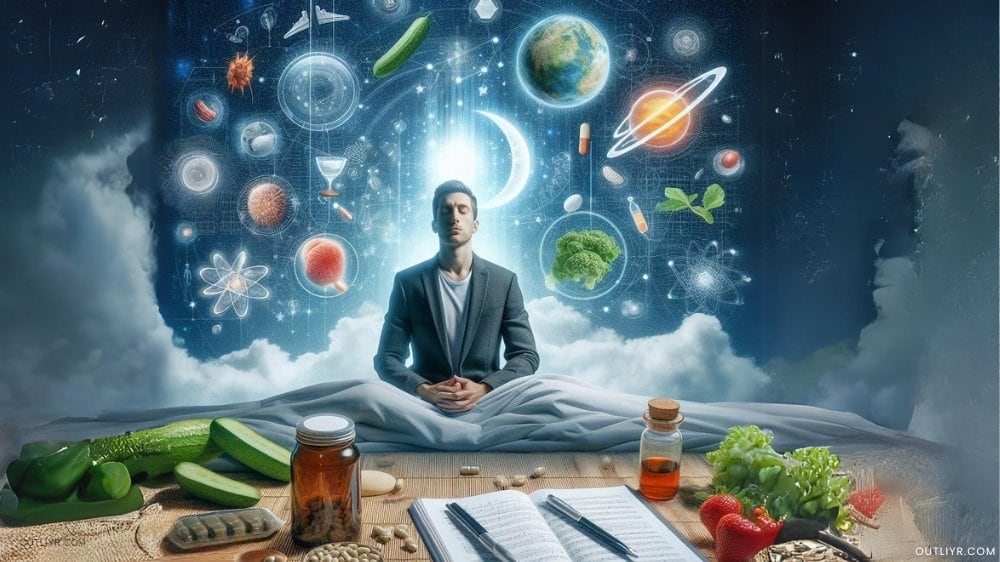
Let’s summarize the most important components of biohacking your way to perfect sleep every night.
It all begins with understanding your baseline. Either use a journal to track your sleep progress or a wearable like Oura.
First thing in the morning, get natural sunlight. You must get outside ASAP to align your circadian rhythm. Remember this…
Your morning determines your night
When you get back, focus on optimizing your bedroom to support optimal sleep all night long.
You’ll want to engage in some movement practice to get your REM and Deep sleep levels up (as well as general health).
You can use some fancy biohacking sleep technologies and gadgets to further amplify your sleep duration and quality.
Reduce anything stimulating (physical or mental) several hours before sleep.
Before bed, make sure to provide your body with some fuel (complex carbs, fat, exogenous ketones, raw honey, etc). This is also an ideal time to use a quality (yet safe) sleep aid.
Activate your sleeping environment, eliminate any stressors, and let yourself drift off.
Sleep: The Overlooked Foundation of Peak Performance
Ultimately sleep cannot be “hacked”.
How can we hack something that we don’t understand? And researchers are a long way from fully understanding sleep.
When it comes to optimizing your sleep, you should focus on:
- Quantity
- Quality
I know that I need more time in bed.
After intense exercise, seven hours isn’t enough for full recovery. I began working on my sleep when my Oura Ring showed I consistently overestimate my sleep time by 45-60 minutes.
In my college years, I looked for any and every way to shortcut sleep. I realized that If I could function on six hours instead of seven, I’d gain 15 days over a year.
I tried crazy polyphasic sleep patterns to success… until I missed one of my five naps spread equally throughout the day. Which caused me to spiral downward. I tried special devices and practices that claimed to reduce the need for sleep. All to no avail.
By no means is sleeping longer easy. I wake up early, excited to take on the day. And go to sleep late, enjoying the final hours of work. However, I control the primary factors influencing my sleep.
My overarching pillars of sleep enhancement include:
- Creating a sensory stimuli-free environment
- Reducing body temperature and heart rate
- Creating a sense of deep safety
- Supporting inhibitory sleep neurotransmitters
- Wake during the lightest phase of sleep
Even then, the longest slumber does no good if it’s not restorative.
Some of my favorite sleep quality enhancers:
- Glycine, full-spectrum hemp, and occasional GABA boosters
- Intense exercise
- Breathwork
- Extreme temperature exposure
On top of creating the perfect sleeping den, I use these basics to sleep better when I travel or am in new environments.
I now begin winding down earlier in the evening. I still test technologies and practices I come across in hopes of uncovering an effective hack to get by with less.
But I haven’t yet found anything that’s the cure for bad sleep.
If you found this article helpful, I’d love for you to send it to someone you think could benefit from the information. Or share it on social media and tag me 🙂.
Now, over to you. Do you have a secret to deep, high-quality, restorative sleep? Drop a comment below and let us know!
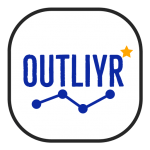
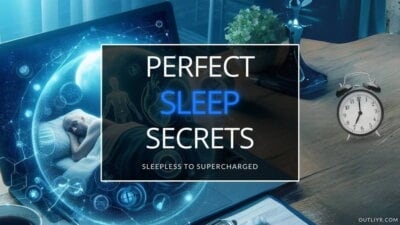
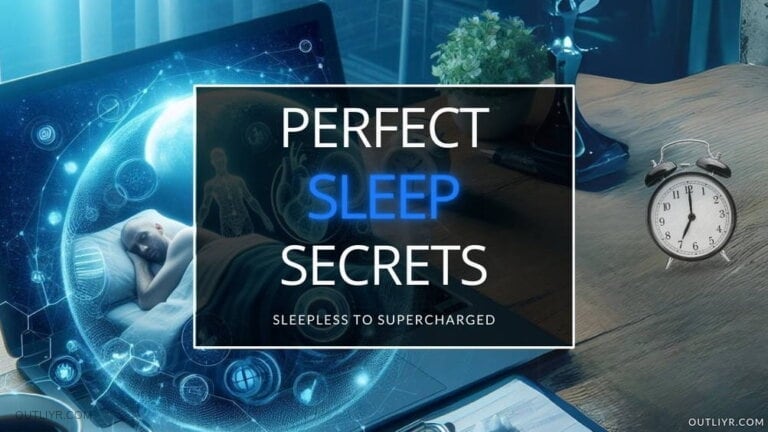
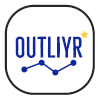
Great article! Did you get a nucalm yet? I would love some non biased review from people who struggle with sleep. Or at least to see how it effects sleep scores.
Hey Julie, thanks!
I have not. I’ve been playing with Brain.fm’s sleep mode recently which is a similar but far cheaper software. I’ve used NuCalm once and did find it helpful. Some of my friends swear by it. The other I’d check out which seems to be popular these days is called BrainTap.